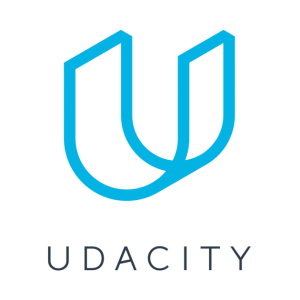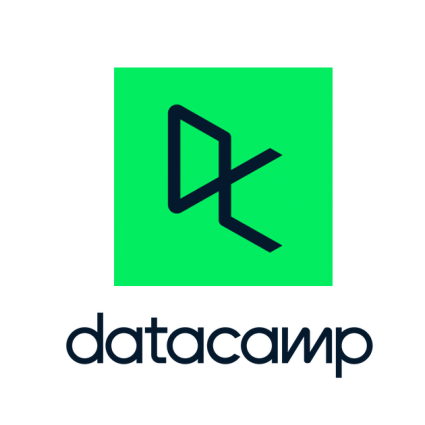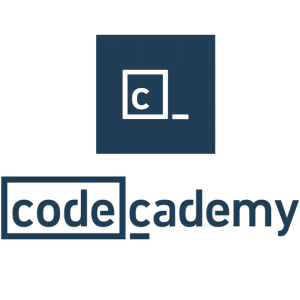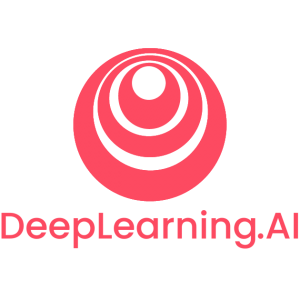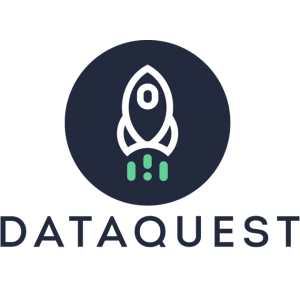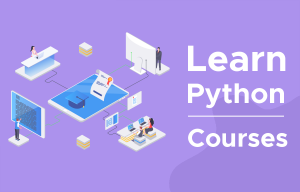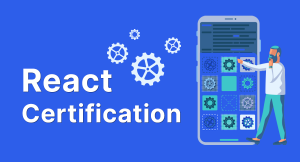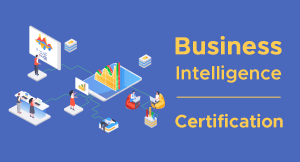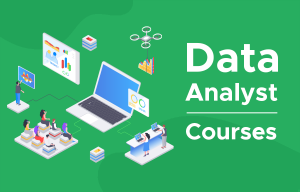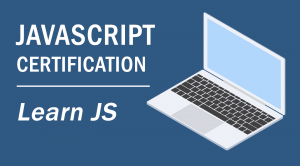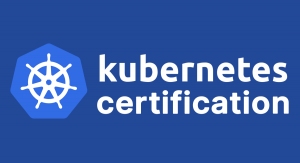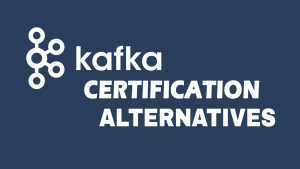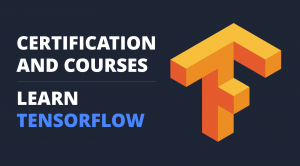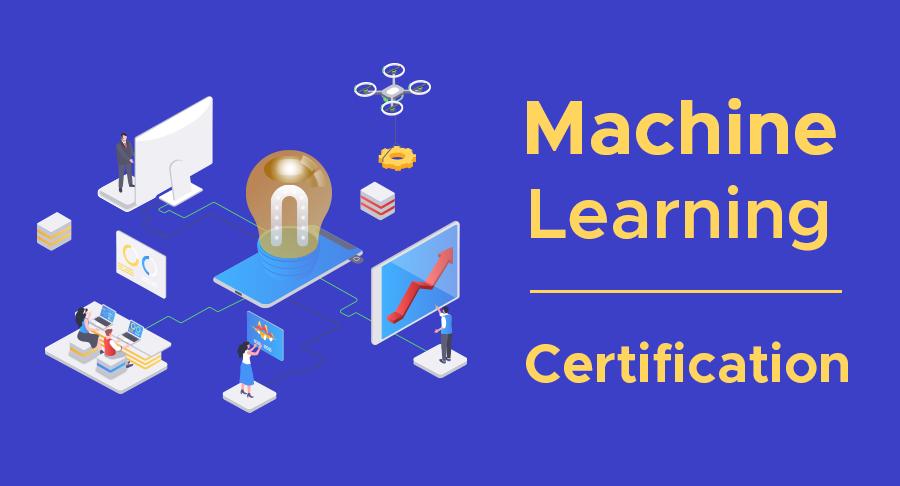
Machine Learning Certification Courses
Machine learning is a branch of AI that uses software algorithms to recognize patterns in data, thus making the system more intelligent.
Nowadays, there are more opportunities for people to create their own applications with machine learning than ever before.
However, before you jump into the machine learning scene, it’s important to make sure that you know what you’re getting yourself into.
There are many different machine learning certification courses available in this field. Each one provides varying levels of knowledge and skills in machine learning. Let’s get started.
1. Machine Learning Engineer for Microsoft Azure Nanodegree (Udacity)
Udacity is one of the most popular online platforms for learning coding, data science, and artificial intelligence. With Udacity, you’ll have the opportunity to learn from industry experts in machine learning.
In this case, it collaborates with Microsoft to provide expert instructions. The Machine Learning Engineer for Microsoft Azure Nanodegree challenges your skills in optimizing ML pipelines and operationalizing machine learning. Finally, you’ll conclude the Nanodegree with a Capstone project.
SAVE 15% OFF when you click the link below until September 30, 2022.
PROS
CONS
COURSES
- Using Azure Machine Learning: Get to know machine learning and Azure for how it can power any business. Next, explore how to configure, design, and manage Azure machine learning pipelines as well as identify use cases for the Azure ML SDK and machine learning.
- Machine Learning Operations: Learn how to operationalize machine learning and apply them to real-world applications. This course is designed for ops professionals who want to implement and operate successful machine learning models in production with Azure.
- Capstone Project: Explore Azure ML and HyperDrive and solve a task using them in a Capstone project. By the end of this course, you will know how to implement a model as a web service, and test it.
VERDICT
Get training and certification in machine learning using one of the most popular platforms on the market today. With the Machine Learning Engineer for Microsoft Azure Nanodegree program from Udacity, you’ll have everything you need to advance your skills and become a machine learning expert. You’ll take part in designing and implementing an operational machine learning pipeline and a Capstone project.
| Instructor | Udacity |
| Duration | 3 months (5-10 hours per week) |
| Certification | Machine Learning Engineer for Microsoft Azure Nanodegree |
| Prerequisites | Python, Machine Learning, and Statistics |
| Skills Acquired | Microsoft Azure, HyperDrive, Python, Scikit-learn, AutoML, Keras, TensorFlow, and PyTorch |
2. Machine Learning Scientist (DataCamp)
Do you want to learn how to use the latest machine learning algorithms? If yes, DataCamp is a world-renowned online platform that offers a Machine Learning Scientist Career Track. This 24-course program focuses on Python and machine learning algorithms such as tree-based models, linear classifiers, unsupervised learning, NLP, and much more.
PROS
CONS
COURSES
- Supervised Learning: Get started with predictive modeling with scikit-learn and check their performance.
- Unsupervised Learning: This course will introduce you to cluster analysis with hierarchical and k-means techniques using the SciPy library.
- Deep Learning: Get a deep understanding of how deep learning works and learn how to build intelligent models with Keras.
- Winning a Kaggle Competition in Python: With a little bit of coding, you can put your skills to the test and learn how to compete in Kaggle competitions.
VERDICT
DataCamp offers a Machine Learning Scientist Career Track that focuses on Python and machine learning algorithms. This program covers an extremely diverse range of topics from dimensionality reduction to machine learning with time-series data.
| Instructor | DataCamp |
| Duration | 93 hours (23 courses) |
| Career Track | Machine Learning Scientist with Python |
| Level | Intermediate/Advanced |
| Skills Acquired | Python, Scikit-learn, Spark, XGBoost, PySpark, TensorFlow, NLP, and Keras |
3. AWS Machine Learning Engineer (Udacity)
Do you want to be an AWS machine learning engineer? With the AWS Machine Learning Engineer Nanodegree, you’ll learn how to design and deploy machine learning models on AWS. You’ll also get hands-on experience with various AI techniques, including deep learning and its operationalization.
PROS
CONS
COURSES
- Introduction to Machine Learning: In this course, you will learn about machine learning with AWS SageMaker. You will create machine learning workflows, perform data clean up, then evaluate with hyperparameter tuning.
- Developing Your First ML Workflow: Get started in machine learning with this comprehensive course that covers the basics of SageMaker and AWS ML workflow. You will learn about the different models that are available and how to use them to train and deploy models.
- Deep Learning Topics within Computer Vision and NLP: Get a deep understanding of how artificial intelligence is used to train deep learning models with Amazon SageMaker. This course will provide you with a comprehensive understanding of how to train and deploy deep learning models.
- Operationalizing Machine Learning Projects on SageMaker: Get hands-on experience with the latest ML tools and learn how to deploy and manage high-volume projects on SageMaker.
- Capstone Project: Inventory Monitoring at Distribution Centers: The project will involve fetching data from a database and preprocessing it. Then, the data will be used to train a machine learning model to monitor the stock inventory levels at a distribution center.
VERDICT
Do you want to be a powerful AWS Machine Learning Engineer? If so, Udacity is the place for you. The AWS Machine Learning Engineer Nanodegree from Udacity offers a unique blend of online learning and professional development. With its cutting-edge training resources and experienced instructors, Udacity can help you develop your skills in AWS machine learning and earn the job-ready skills for success.
| Instructor | Udacity |
| Duration | 5 months (5-10 hours per week) |
| Certification | AWS Machine Learning Engineer (Udacity) |
| Prerequisites | Basic knowledge of machine learning algorithms and Python programming |
| Skills Acquired | AWS SageMaker Studio, XGBoost, and AutoGluon |
4. Get Started with Machine Learning (Codecademy)
Get started in Codecademy’s Machine Learning Skill Path. This course is designed for Python programmers who want to learn how to use ML to solve complex problems. You’ll learn regression, supervised learning, and unsupervised learning. By the end of the course, you will test your skills in two applied projects and one final Capstone project.
PROS
CONS
COURSES
- Prediction Using Linear Regression: This course will teach you how to use linear regression for prediction purposes. By understanding how linear regression works, you can make predictions about data that are both accurate and data-driven.
- Supervised Learning: Take a course that will help you learn how to structure and interpret data, how to use machine learning models, and how to optimize your model. Learn to classify data using advanced supervised machine learning techniques.
- Unsupervised Learning: Get a better understanding of how unsupervised learning works and how to implement it into your models. This course is designed for data scientists who want to learn more about how to use machine learning algorithms like K-means clustering.
- Applied and Capstone Project: Work on various applied projects including handwriting recognition with K-means, breast cancer classifier, and sports vector machine.
VERDICT
Codecademy’s Machine Learning Skill Path provides you with the skills and knowledge you need to start learning machine learning. You will learn how to use regression, supervised learning, and unsupervised learning. Finally, you’ll complete several skill-testing applied projects to reinforce what you’ve learned throughout the skill path.
| Instructor | Codecademy |
| Duration | 7 weeks |
| Skill Path | Get started with Machine Learning |
| Level | Intermediate |
| Skills Acquired | Python 3, Scikit-learn, Matplotlib, Pandas, and Jupyter Notebooks |
5. Data Engineering, Big Data, and Machine Learning on GCP Specialization (Google)
Data engineering is the perfect fit for the Data Engineering, Big Data, and Machine Learning on GCP Specialization. With this specialization, you will gain hands-on experience with big data and develop skills in machine learning and data pipelines. If you want to learn data engineering using the Google Cloud Platform, then this is the specialization you should take.
PROS
CONS
COURSES
- Google Cloud Big Data and Machine Learning Fundamentals: Through a combination of presentations, slides, and labs, this comprehensive course introduces participants to the machine learning and big data capabilities of Google Cloud.
- Modernizing Data Lakes and Data Warehouses with Google Cloud: A modern data lake and warehouse are two essential components in a data-driven business and are key enablers of many business processes. This course will teach students the use cases for data lakes, warehouses, and data pipelines on the Google Cloud Platform.
- Building Batch Data Pipelines on GCP: Gain an understanding of the different data pipeline paradigms (EL, ELT, ETL) and when to use them in batch data processing environments. Explore Google Cloud technologies like BigQuery, Spark, and Dataflow on Google Cloud using Qwiklabs.
- Building Resilient Streaming Analytics Systems on Google Cloud: Build a streaming analytics system with Google Cloud Platform with real-time insights using Dataflow, BigQuery, and Cloud Bigtable.
- Smart Analytics, Machine Learning, and AI on GCP: Gain deep insights from your data and extract valuable information from machine learning through Google Cloud using QwikLabs.
VERDICT
When it comes to cloud providers, Google Cloud Platform (GCP) has many tools available for companies that are interested in analyzing their data and using machine learning algorithms. The Data Engineering, Big Data, and Machine Learning on GCP Specialization will teach you what it takes to familiarize you enough to start building data pipelines to make sound business insights.
| Instructor | Google Cloud |
| Duration | 4 months (4 hours per week) |
| Certification | Data Engineering, Big Data, and Machine Learning on GCP Specialization |
| Level | Intermediate |
| Skills Acquired | BigQuery, Qwiklabs, ETL, Google Cloud Platform, Cloud Bigtable (NoSQL), Kubeflow ML, and AutoML |
6. Machine Learning DevOps Engineer Nanodegree (Udacity)
Get the skills you need to streamline and deploy machine learning models to a production-level environment. Plus, learn how to deploy a scalable ML pipeline and build a reproducible model workflow through the Machine Learning DevOps Engineer Nanodegree.
PROS
CONS
COURSES
- Clean Code Principles: Get the skills you need for testing and logging in order to ensure your models use clean code principles.
- Building a Reproducible Model Workflow: This course will teach you how to build a reproducible machine learning pipeline from scratch using MLflow.
- Deploying a Scalable ML Pipeline in Production: Get the skills and knowledge you need to deploy a scalable ML pipeline into production. This course will teach you how to version control your data and models and optimize your performance.
- Automated model scoring and monitoring: Improve the efficiency of your models by automating the devops processes that you need to score and re-deploy models.
VERDICT
With the Machine Learning DevOps Engineer Nanodegree, you’ll learn how to design, create, deploy, and monitor DevOps ML pipelines. This nanodegree offers an in-depth understanding of machine learning algorithms and their application within the DevOps context. But prior experience with Python and machine learning is required to enroll in this Nanodegree program.
| Instructor | Udacity |
| Duration | 4 months (10 hours per week) |
| Certification | Machine Learning DevOps Engineer Nanodegree |
| Prerequisites | Prior experience with Python and Machine Learning |
| Skills Acquired | PyLint, AutoPEP8, Github, Kubernetes, Kubeflow, Great Expectations, Data Version Control (DVC), and FastAPI |
7. Machine Learning Scientist with R Career Track (DataCamp)
Get the skills you need to excel in your career as a Machine Learning Scientist with R. This course provides the skills and knowledge you need to work with machine learning models, process data, train models, and optimize their performance. Plus, you’ll pick up some skills along the way like using Apache Spark.
PROS
CONS
COURSES
- Machine Learning Fundamentals in R: Get a better understanding of machine learning, so you can create more effective and efficient algorithms. This course is for those who want to know how machine learning works, but also want to find out more about the different algorithms and their applications.
- Supervised Learning in R: Regression and Classification: In these courses, you will learn how to predict the outcomes of different events using various models including support vector machines, random forests, and Xgboost to predict future events.
- Unsupervised Learning in R: Learn how to make use of hierarchical clustering and dimensionality reduction to extract insights from data. You will also get a strong intuition for hierarchical and k-means clustering and learn how to apply them to extract insights from your data.
- Introduction to Spark with Sparklyr in R: Learn how to read and analyze large datasets using Apache Spark and R. In this course, you will also learn how to use Sparklyr package to read and analyze data.
VERDICT
This career track is packed with a lot of different opportunities to learn machine learning. This includes everything from regression, supervised learning, and hyperparameter tuning. If your focus is using R, then you should strongly consider the Machine Learning Scientist with R Career Track.
| Instructor | DataCamp |
| Duration | 61 hours (15 courses) |
| Career Track | Machine Learning Scientist with R |
| Level | Intermediate/Advanced |
| Skills Acquired | R Programming, Apache Spark, Xgboost, Tidyverse, K-Means Clustering, Support Vector Machine, Sparklyr |
8. Machine Learning Engineering for Production (MLOps) Specialization (DeepLearning.ai)
The Machine Learning Engineering for Production (MLOps) Specialization is a program designed for students who are interested in the role of machine learning in production operations. Not only will you build an end-to-end ML production system, but you will explore how to model and deploy them as well with a focus on data lifecycle.
PROS
CONS
COURSES
- Introduction to Machine Learning in Production: You will learn the theory and practical application of developing, deploying, and modeling a production-ready ML system end-to-end.
- Machine Learning Data Lifecycle in Production: You will learn how to achieve the most predictive power out of your data and build data pipelines by gathering, cleaning, and validating datasets. Then, you will explore how to transform, select, and engineer data using TensorFlow and apply it to your own machine learning projects.
- Machine Learning Modeling Pipelines in Production: Automate and optimize your machine learning modeling pipelines in production and leverage analytics tools to respond to model fairness and performance.
- Deploying Machine Learning Models in Production: In this course, you will learn how to deploy ML models, implement workflow automation, and learn how to monitor your system for continuous operation.
VERDICT
The Machine Learning Engineering for Production (MLOps) Specialization is designed for students who are looking to explore the many opportunities in machine learning engineering and AI-powered productivity. This program will teach you methods for designing ML models, building scalable solutions to large-scale production problems, and creating high-performing applications.
| Instructor | DeepLearning.ai |
| Duration | 4 months (6 hours per week) |
| Certification | Machine Learning Engineering for Production (MLOps) Specialization |
| Level | Advanced |
| Skills Acquired | PyTorch, Keras, TensorFlow Extended |
9. Professional Certificate in Data Science (Harvard)
Where did you graduate from? Harvard University. Imagine that? This can be you! With more industries than ever before collecting data on their customers, it’s become essential to understand how to present your information in a way that makes sense to not just you but to others as well. This is why data science has emerged as an important skill for today’s digital age including the Professional Certificate in Data Science.
PROS
CONS
COURSES
- Probability, Inference, and Modeling: Learn how to apply linear regression and the ins and outs of statistics using R.
- Wrangling and Productivity Tools: Learn the tools needed to wrangle data and build reproducible reports. Gain knowledge of production techniques that will help you work more efficiently.
- Machine Learning: With this course, you will learn how to apply machine learning techniques to real-world problems and make them scalable. You will also be able to take this knowledge and apply it to your own projects in the future.
- Capstone Project: Gain the skills needed and wrap it all up as you work through a real-world data science project.
VERDICT
Data visualization is an essential skill for every data scientist and statistician. The increasing amount of data that we have access to is more than enough for us to create beautiful, informative, and insightful figures and graphics. Harvard University’s Professional Certificate in Data Science covers a wide range of topics to help you master data visualization and much more.
| Instructor | Harvard University |
| Duration | 1 year and 5 months |
| Certification | Professional Certificate in Data Science |
| Material | 9 Skill-Building Courses |
| Skills Acquired | R, Ggplot2, Tidyverse, Dplyr, RStudio, GitHub, and Regex |
10. Machine Learning Fundamentals (Dataquest)
The Machine Learning Fundamentals Skill Track from Dataquest will teach you how to use machine learning to solve problems in your industry. For instance, you will get a better understanding of how K-nearest neighbors work and how you can use it to make better predictions.
PROS
CONS
COURSES
- Introduction to K-Nearest Neighbors: Get a better understanding of how to use K-Nearest Neighbors to suggest optimal AirBnB list prices. After taking this course, you will be able to improve your predictions by using more features.
- Evaluating Model Performance: Learn how to Evaluate Model Performance and make improvements to your model. This course is designed for individuals who are looking to improve the accuracy and performance of their models through hyperparameter optimization and cross validation.
- Predicting Car Prices: Use k-nearest neighbors to quickly and most accurately predict car prices. In this course, you will learn how to improve your predictions by using machine learning to find the most accurate models.
VERDICT
You will learn how to use machine learning to solve everyday problems by taking the Machine Learning Fundamentals Skill Track from Dataquest. This track is designed for people who want to improve their understanding of machine learning with Python and how it can be used in order to make better predictions.
| Instructor | Dataquest |
| Duration | 6 courses |
| Track | Machine Learning Fundamentals |
| Level | Intermediate |
| Skills Acquired | Python and Scikit-learn |
Machine Learning Certification Courses
When it comes to skills and knowledge, machine learning is on a whole different level. With so many different applications and industries that need it, the field of machine learning has become extremely complex.
Whether you’re looking to learn how to use ML algorithms or want to become a better data analyst, there are a number of machine learning certification courses available that will help you achieve your goals.
To be able to use machine learning effectively, you need to have a strong understanding of its principles and how it works. In this article, we’ve discussed the 10 best machine learning certification courses that will give you the skills and knowledge you need to get started in this growing field.
If you’re looking for more certification courses related to machine learning, artificial intelligence, or data science, here are some more options to get started.
- 10 Machine Learning Certification Courses: Jumpstart Your Career In AI
- TensorFlow Certification: Learn AI and Machine Learning
- PyTorch Certification To Kickstart Your Career in AI
- 10 Python Courses and Certificate Programs
- Data Analyst Certification For Beginners
- 10 Best Data Science Courses and Certification

